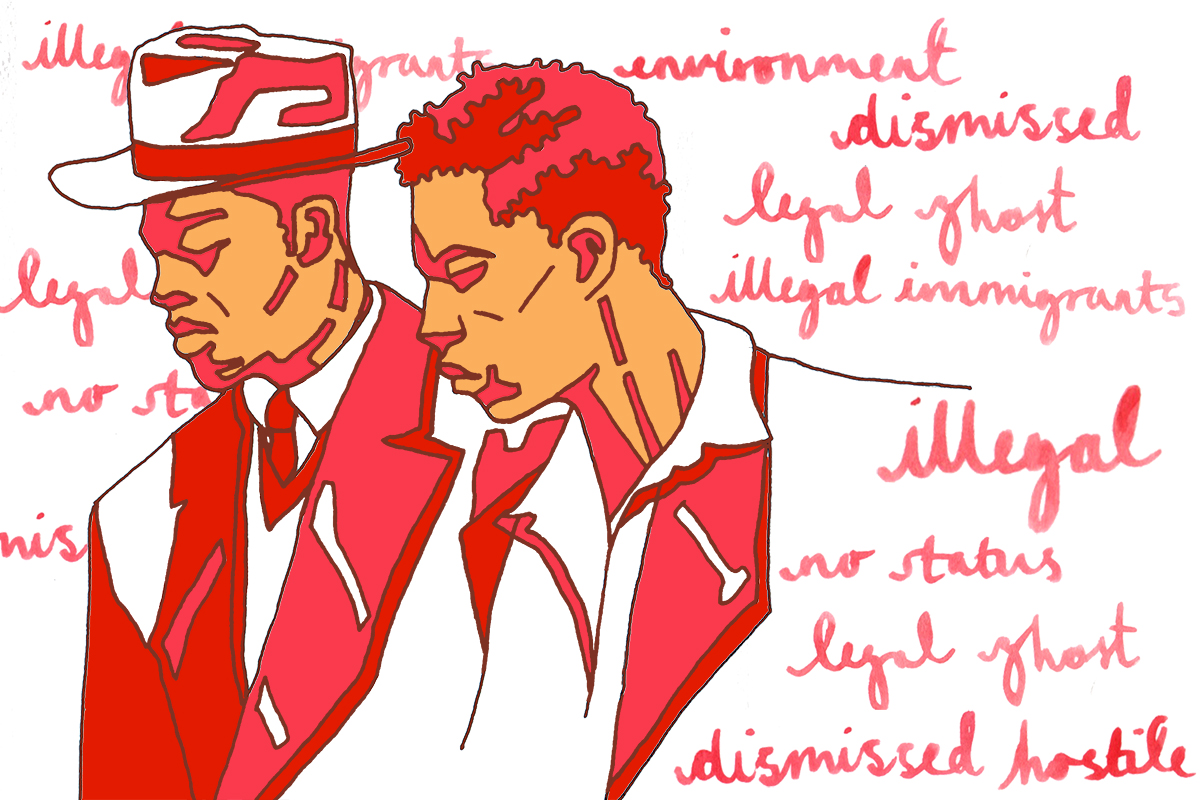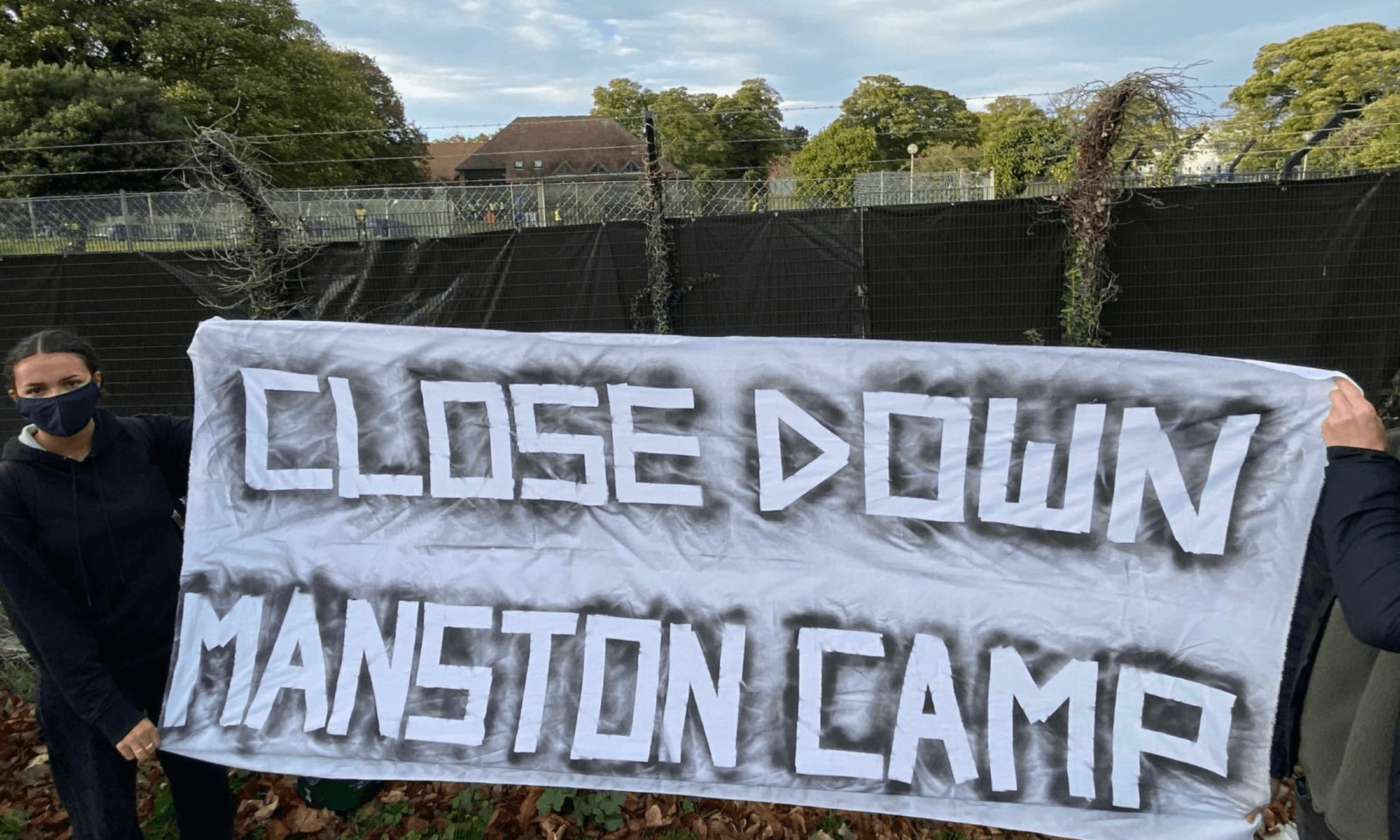
Caribbean British elders, who have been residents in the UK for the majority of their lives, are becoming aware of the political terms “legal ghost” and “no status.”
As these terms are increasingly and unexpectedly applied to this community, many only become aware that things have changed for them when they get a letter from their employer, as in the case of 64 year old Renford McIntyre a UK resident for almost 50 years. In 2017, he was officially told that he was not British and consequently, is no longer allowed to work or receive any government support in the form of social benefit. In 2014, Renford McIntyre’s employers asked him to update his paperwork and when it was discovered that he no longer had a valid passport or naturalisation papers, he was dismissed. McIntyre arrived in the UK in 1968 and followed all legal requirements to be in the country. He arrived as a British citizen, living and working as such for his entire life.
Following Renford McIntyre’s dismissal from employment, he could not get a new job without the requisite papers. He soon became depressed, and eventually homeless because his local council, Dudley Council, in the West Midlands, said that official records meant that he was not eligible for emergency housing and had no right to be in this country.
“the Home Office is re-classifying them as illegal immigrants with no status, forcing them to become legal ghosts”
In an effort to prove his status as a British citizen, Renford McIntyre gathered 35 years of paperwork showing – among other things – his National Insurance contributions, and sent an application to the Home Office for his retrospective citizenship. Despite this bundle of evidence; his work, his contributions to society and the British infrastructure, the Home Office rejected and returned the application, requesting yet further evidence.
Renford McIntyre is part of a group of people who have lived and contributed to society as British citizens, yet, as they reach retirement age, after being settled in this country for the majority of their lives, the Home Office is re-classifying them as illegal immigrants with no status, forcing them to become legal ghosts who are often not recognised by the country they live in or the country of their birth.
The cost of making an application for a visa and citizenship continues to rise. It can now cost £2,297 to become a permanent resident and an additional £1,282 for citizenship – each person has to take a citizenship test containing the most obscure questions including subjects like the sizeof the Lake District, and poetry by Lord Byron.
The high costs of visa and citizenship applications appear to be an extra tax on Caribbean British people because a Freedom of Information (FoI) request from the BBC has revealed that it costs a maximum of £264 to process an application that is currently charged at £2,297. In September 2017 the Home Office stated it could cost from £135 per citizenship application, yet they are charging up to 900 per cent more on many applications.
Additionally the Home Office is now charging £5.48 (payable in advance) for each email it sends in response to customer service enquiries from overseas visa applicants. Therefore applicants, including those who have been deported, sometimes within 14 days of notification, have to pay to even enquire how to make an application.
“the Ombudsman upholds more complaints against the Home Office than any other Government department”
These policies are a result of the hostile environment that Theresa May said she wanted to introduced for illegal migrants with the Immigration Act that became law on the 12 May 2016.
Paul Blomfield MP confirmed a report that “the Tories’ immigration system is based on a reactionary agenda, not reason” and that the Ombudsman upholds more complaints against the Home Office than any other Government department; evidenced by inhumane mass deportations, and the inability to assess asylum claims in a fair and timely manner – often overturning decisions after media intervention reminds them of humanity.
In 2015-16 the Ombudsman upheld 75% of complaints against the Home Office, compared to 36% about the Ministry of Justice and 10% about HM Revenue & Customs. The 2015-16 figures represent a rise – from already high figures of 60% in 2013-14, and 69% of complaints against the Home Office in 2014-15.
In response to the BBC’s aforementioned FoI request the Home Office stated, “When setting fees, we also consider the benefits that a successful applicant is likely to gain and believe that it is right that those who use and benefit directly from the system make an appropriate contribution towards meeting associated costs”. But this should not be applicable to a group of people who have already spent their lives paying National Insurance and taxes from their earnings.









